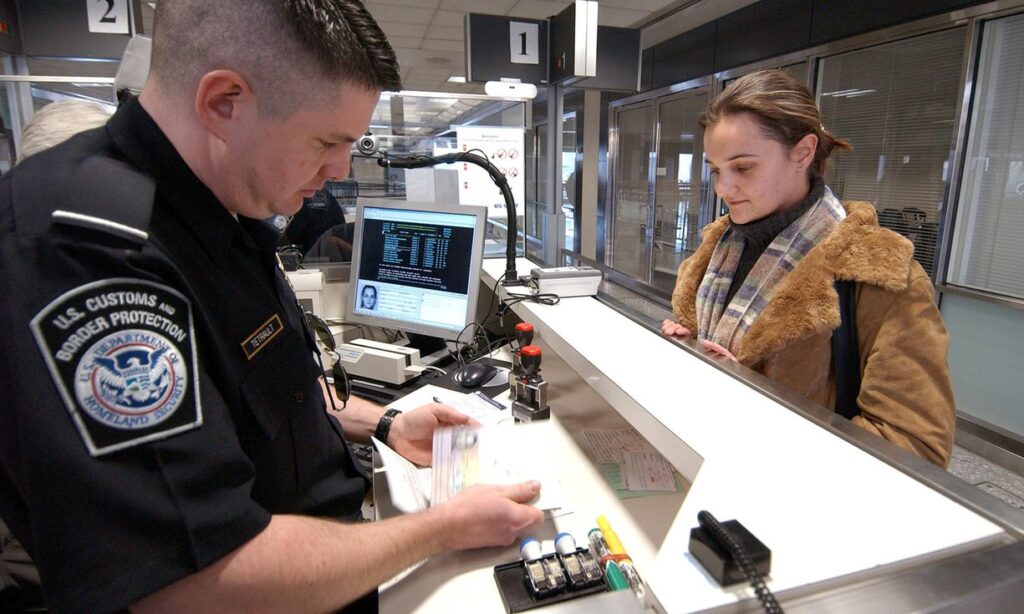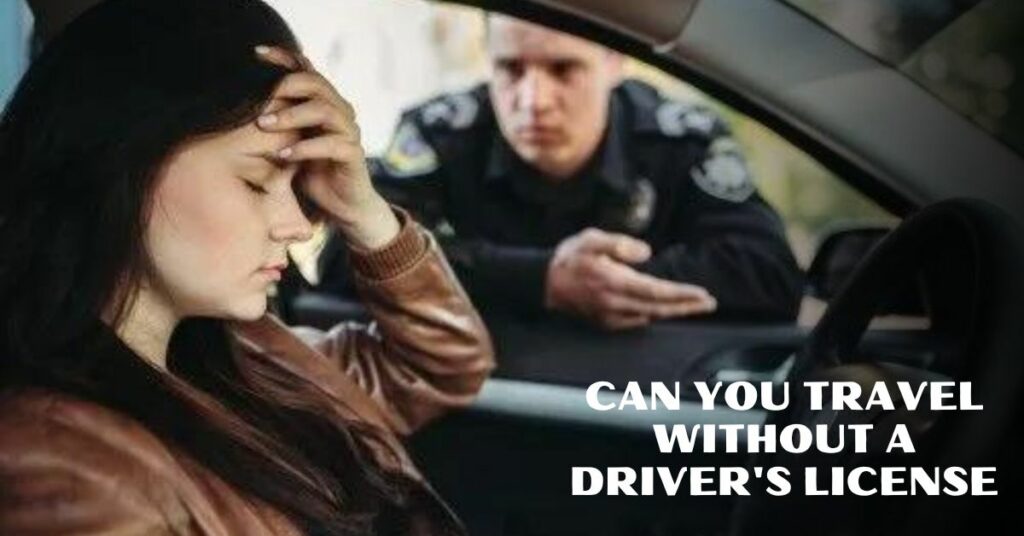Do you want to travel while on parole? It’s a question many ex-offenders find themselves asking. While it may seem like an impossible dream, the truth is that around two thirds of all people released from prison in the United States are able to take trips within their home state during their probation period. This statistic highlights how even those who have been convicted of crimes can still enjoy some freedoms and explore new places.
However, for anyone thinking about traveling while on parole, there are important rules and regulations they must adhere to in order to stay out of trouble with law enforcement. From restrictions around which states they can visit to knowing what types of activities they should avoid, individuals need to be aware of these guidelines before taking any journeys.
In this article, we’ll look at everything you need to know if you’re planning a trip while on parole. We will discuss the common rules each individual needs to follow so that they don’t violate their probation terms and end up back behind bars. So whether you simply want more freedom or are looking forward to exploring new destinations, read on and discover all you need to know about travelling while on parole!
1. What Is Parole?
Parole is like a tightrope between freedom and captivity; it allows for some of the benefits of release from prison, but with restrictions. It’s as if you are granted brief moments outside your cell to take in fresh air – while still being watched at all times. Parolees must abide by certain protocols set forth by their parole officer or state authorities; this includes meeting regularly with their parole officers, adhering to work schedules, refraining from criminal activity or substance abuse and often abstaining from contact with past associates.
But how does travel fit into the picture? The answer depends on where one is travelling within the United States or overseas. While states may vary when it comes to allowing international travel, many require that permission be granted before any journey can begin. This means filling out forms, providing documentation and getting clearance for any type of extended trip – whether across country lines or even just overnight stays away from home.
In order to determine eligibility for such trips, those on parole should consult with both their probation/parole officer and a qualified attorney who specializes in understanding rules specific to international travel. Doing so could provide clarity about what exactly would be required – including any additional paperwork needed – as well as guidance regarding possible consequences for violating regulations during an approved outing abroad.
2. Eligibility For International Travel
Escaping the everyday can be a liberating experience, but if you’re on parole, will it still be possible to travel internationally? Unraveling this mystery requires an understanding of eligibility for international travel.
When considering traveling abroad while on parole, there are two major questions that need answering: is it allowed and what kind of restrictions may exist? Let’s begin with the former. In general, according to the U.S. Department of State, those who are on probation or supervised release are eligible to apply for a passport in most cases; however, there are exceptions depending upon the conditions set forth by your parole officer or state law.
It’s important not only to understand whether or not you’re able to go overseas, but also any limitations that may accompany such freedom. Most importantly, if travelling outside of the country is authorized by your parole officer or state law – which is often done through written consent – then make sure you keep said documentation safe and handy during all travels should they be required at customs checkpoints when entering/exiting countries. With these considerations taken into account and given appropriate approvals from authorities involved in your case, all that remains is obtaining a passport…
3. Obtaining A Passport On Parole
Navigating the vast ocean of parole can feel like an uphill battle. Obtaining a passport on parole is just one more hurdle to clear in order to set sail towards freedom and new horizons. But with the right guidance, you’ll soon be ready to embark on your journey.
First things first: before applying for a passport, check if you are eligible. If you have any convictions that could lead to deportation or other legal complications when travelling abroad, then it’s best not to take that risk. Additionally, depending on your country of origin and residency status there may also be restrictions in place which prevent international travel while serving out your sentence. It’s important to do thorough research into these policies beforehand so as to avoid any roadblocks along the way.
Assuming all conditions are met, obtaining a passport should be fairly straightforward – provided you have the required documents at hand such as proof of identity and residence permits/visas from home countries if applicable. In some cases, further verification might be required by law enforcement officials; this process should only take days or weeks at most depending on how quickly paperwork is submitted and processed. Even though we live in a digital age where many processes can now be completed online – remember that even electronic records must still comply with local laws and regulations!
Once all requirements are fulfilled, prepare for takeoff! The next step will involve learning about various travel and visa restrictions once outside one’s home country – but don’t let this stop you from fulfilling your dreams of exploration!
4. Travel And Visa Restrictions
Traveling while on parole can be complicated, but it is possible. Depending on your state and the specific rules of your parole agreement, there may be travel and visa restrictions to consider.
It’s important to know if you are allowed to leave a certain geographic area or enter another country without special permission from a parole officer. You should also research any visa requirements for the destination country in advance. Additionally, some states require parolees to notify their probation officers before leaving town; even for short trips.
If you do receive special permission for international travel, make sure that you have all necessary paperwork filled out correctly and approved by authorities ahead of time. Furthermore, it’s essential that parolees follow through with any obligations outlined in their release agreement upon returning home after traveling abroad.
TIP: Check with your parole officer in advance about what kind of documentation will be needed when applying for permission to travel so that the process runs smoothly!
5. Obtaining Travel Permission From Parole Officers
Traveling on parole is like being in a prison with an open door. You may be out of the physical restraints, but you are still chained to certain rules and regulations that must be followed if you want to live your life outside jail walls. Obtaining travel permission from parole officers can be tricky and requires careful navigation of laws and protocols governing this type of situation.
The process begins by understanding what kind of restrictions have been placed upon you as part of your parole agreement. This includes any stipulated locations or destinations which are off limits during your term, such as high risk countries or areas deemed dangerous. Once these parameters are clarified, it’s time to seek approval for the desired trip from your assigned parole officer.
In order to get the green light on your journey plans, it’s important to communicate clearly about where you intend to go and why. Additionally, provide documentation that outlines a plan for how all necessary responsibilities will continue to be met while away – whether its paying rent/bills or attending probation meetings/drug tests etc. Be sure to also offer proof that there is someone who can act as a point of contact back home in case anything changes unexpectedly while abroad. With all pieces properly put together and presented in advance, there’s no reason not to expect authorization for taking flight!
It takes extra effort when traveling on parole compared to those without criminal records, however following protocol should lead directly into smooth sailing skies ahead – allowing freedom-seeking adventurers like yourself take their hard earned dreams above the clouds!
6. Traveling To High Risk Countries
Traveling to high risk countries can be a daring and exciting experience, but for those on parole it has additional considerations. Navigating the travel regulations of your parole conditions is key to making sure that you stay safe and within the law.
Before deciding to take the plunge into an international journey, make sure you know exactly what kind of permission from your parole officer is necessary for such a trip. In some cases, they may require further documentation or even have restrictions in place regarding certain destinations or activities. It’s important to ensure that all these requirements are met before embarking on any overseas adventure – otherwise you could find yourself in hot water with your parole officer!
Your safety should always come first when traveling abroad, especially if you’re visiting places where there might be greater risks involved than if going somewhere more familiar. Do thorough research ahead of time so that you can prepare yourself as best as possible – this includes things like learning about local customs and laws, researching potential medical needs, and understanding transportation options. By maintaining awareness throughout your travels, you’ll be better prepared for any unexpected challenges along the way.
With careful planning and preparation, traveling while on parole doesn’t have to mean leaving behind your sense of adventure – but it does require taking extra precautions to stay secure. Knowing how to navigate both foreign lands and US legalities will help keep you out of trouble while allowing you to explore new cultures and experiences around the world. Let’s now look at potential complications and challenges associated with traveling while on parole.
7. Potential Complications And Challenges
Traveling while on parole can be tricky business. As the saying goes, “the devil is in the details.” It’s important to understand that there are potential complications and challenges when considering international travel during this time.
First of all, it’s highly recommended to check with your PO (Parole Officer) prior to making any plans for traveling abroad. They may require you submit an itinerary and have additional restrictions that must be followed in order for them to approve the trip. In some cases if a PO does not approve a proposed trip they will revoke parole privileges or even institute other sanctions. Furthermore, each country has its own requirements which need to be met before entering their borders so doing research ahead of time is essential.
Additionally, depending on the type of crime committed many countries may deny entry altogether regardless of whether permission was granted by the PO or not. This could cause delays returning home as well as being held responsible for legal fees and fines associated with trying to enter a restricted country without proper clearance from local law enforcement agencies. So make sure you know what steps need to be taken beforehand!
The bottom line: going abroad while on parole requires a lot of preparation and due diligence in order to avoid potentially serious consequences down the road. Now let’s look at alternatives to international travel…
8. Alternatives To International Travel
For those on parole, international travel can seem like an impossibility. But the reality is that there are ways of getting around this limitation and still explore the world. Here we look at 8 alternatives to international travel while on parole.
It may be objected that individuals on parole do not have enough financial resources to go abroad. This is true; however, as we’ll see below, there are some solutions which don’t break the bank:
• Virtual Travel: With virtual tours available for many famous landmarks across the globe, you can ‘visit’ places you might never get to in person such as The Great Wall of China or Machu Picchu – all from your own home!
• Domestic Vacations: Exploring a new city within your country or taking a road trip to somewhere close by can help satisfy wanderlust without leaving your borders. You could even use domestic vacation opportunities as inspiration for future international trips once off parole!
• Cultural Immersion Close To Home: There are plenty of cultural activities going on near you throughout the year with festivals, events and classes that offer unique experiences in foreign cultures right here in your own backyard.
So although it may not be possible to hop aboard a plane anytime soon if you’re on probation, these alternative options provide exciting opportunities for exploration and learning about other cultures that won’t put any extra strain on your wallet – making them ideal for anyone limited by their circumstances.
Frequently Asked Questions
Are There Any Restrictions On The Type Of Travel I Can Do While On Parole?
“The journey of a thousand miles begins with a single step,” goes the old adage. And when it comes to traveling while on parole, there are certainly some important steps that one must consider in order to make sure they stay within the bounds of the law. Here is a list of three things you should keep in mind:
First and foremost, find out what restrictions your particular situation has put upon you. Depending on why you were placed on parole and other factors such as any prior convictions or sentences, different rules may apply. Knowing these will help inform how much travel is allowed and where you can go without violating terms of your release.
Second, understand what documentation will be necessary for each trip you plan to take. This usually includes having written permission from both your probation officer and parole board before taking any trips outside their jurisdiction or country if applicable. Having all this paperwork sorted ahead of time will save time and frustration down the road so make sure to collect it early!
Finally, always check in regularly with your parole officers during your travels to remain compliant with conditions laid out by them. Don’t forget that while being released from prison gives us hope for freedom, we still need to honor our obligations until completion. Traveling while on parole doesn’t have to be a burden; just remember to take care when planning ahead and keep communication open throughout the process.
Do I Need To Inform My Parole Officer If I’m Planning To Travel?
Traveling while on parole can be tricky. Understanding the restrictions and obligations of your situation is key to travelling without getting into trouble with your parole officer. So, do you need to inform them before booking a trip?
The answer depends on the specifics of your parole agreement. Generally speaking, it’s always best practice to check in with your parole officer if you plan on going anywhere outside of the area where you live. This way they’re aware that you’ll be away from home for a certain period of time – even if it’s just a weekend getaway or visiting family for an extended stay. Notifying them also allows them to confirm that any travel plans are allowed under the terms of your release.
Regardless, there may be other rules put in place by the court which restrict how far away from home you can go, or when and how often you’re allowed to travel; so make sure to double-check all details before planning trips out of town. Following these guidelines will help ensure that your journey goes smoothly and hassle-free – allowing you to enjoy some freedom while still abiding by the conditions set forth by your parole requirements.
Are There Any Limitations To Where I Can Travel While On Parole?
The desire for freedom is something that we all share, but when you are on parole it can feel like a distant dream. Traveling while on parole may seem impossible at first glance, with restrictions and regulations galore; however, there are certain ways to make your journey successful. So what limitations should you be aware of if you’re planning to travel while on parole?
When it comes to traveling while on parole, the most important thing to consider is where you plan to go. Depending upon the state and even county in which your probation officer resides, they might require written permission prior to departure. Additionally, some states have laws prohibiting people on parole from crossing their borders without approval from the supervising authority. It’s also worth noting that leaving the country altogether could potentially land you back in jail regardless of any other requirements or permissions given.
Finally, there may be conditions attached to your parole agreement that limits how far away from home you can travel – such as not being able to leave a certain city or state. That said, many times these rules will depend upon your specific case and needs so be sure to speak directly with your PO about any questions or concerns related to this topic before making any trips abroad. Ultimately taking the time now will help ensure that everything goes smoothly later!
Traveling while on parole doesn’t have to be an intimidating process – by understanding the potential limitations ahead of time and getting approval wherever necessary, you can enjoy the freedom of movement once again!
Are There Any Additional Costs Associated With Traveling While On Parole?
Navigating the world of parole can be a tricky endeavor. As you explore your options for traveling while on parole, you may find yourself asking: are there any additional costs associated with this? The answer is yes — and it’s important to understand how those costs could affect your journey.
When traveling while on parole, you will likely incur extra expenses that go beyond airline tickets or gas money. You’ll need to factor in any fees associated with requesting permission from your parole officer ahead of time; these vary depending on location but often include an administrative fee or processing charge. Additionally, if you plan to travel outside of your home state during parole, some states require inmates to pay for their own transportation back after they arrive at their destination.
All of these factors add up quickly and can make what seemed like a simple trip much more expensive than originally planned. Before embarking on a journey while on parole, be sure to fully research all potential costs and limitations so that you don’t end up unexpectedly out-of-pocket when the adventure is over. Taking the time to prepare now can help ensure that your travels remain safe — and financially secure!
Are There Any Other Forms Or Documents I Need To Obtain Before Traveling While On Parole?
Are you considering traveling while on parole? If so, what other forms or documents do you need to obtain before doing so?
The answer may vary depending on your situation and the restrictions placed upon you by your parole officer. Here are few key points worth keeping in mind:
• You will likely have to inform your parole officer of any travel plans prior to leaving.
• You might also be required to provide evidence that you can cover all costs associated with the trip.
• In some cases, a written permission slip from your parole officer is necessary for interstate travel.
• It could also be possible that you must remain within a certain area during your travels.
• Depending on the circumstances, it might even be necessary for an additional person to accompany you during the journey.
At times, these requirements can seem overwhelming; however, they are important steps in ensuring compliance with your parole conditions. Keeping yourself informed about all relevant rules and regulations beforehand is essential when planning any kind of travel while on parole – whether it’s domestic or international. Taking proactive measures such as this can help ensure that no unexpected surprises arise during or after your trip!
Conclusion
In conclusion, traveling while on parole can be a tricky process. It is important to understand the restrictions and requirements in your particular state or country before you travel. One interesting statistic is that an estimated 2 million people are currently on probation or parole in the United States alone.
It’s essential to check with your parole officer prior to any type of travel as they may have specific guidelines for you to follow. You may also need additional documents such as permission slips from your parole officer in order to travel outside of your home city or county. Lastly, there could be additional costs associated with traveling while on parole so it’s best to ask ahead of time if those expenses would be covered by yourself or the court system.
Overall, understanding what is required when you plan to travel while on parole will give you peace of mind and help make sure everything goes smoothly during your trip. With proper planning and guidance, taking a vacation while on parole doesn’t have to be stressful!

Meet Michael Graham, the main author of SeekTraveler.com. With a wanderlust that knows no bounds, Michael has traversed more than 30 countries across the globe. From sun-soaked Caribbean islands to the ancient marvels of Europe and the captivating charm of Japan, he has witnessed the wonders of diverse cultures firsthand. Michael’s in-depth knowledge and contagious enthusiasm for travel will inspire you to pack your bags and embark on your own extraordinary journey.



